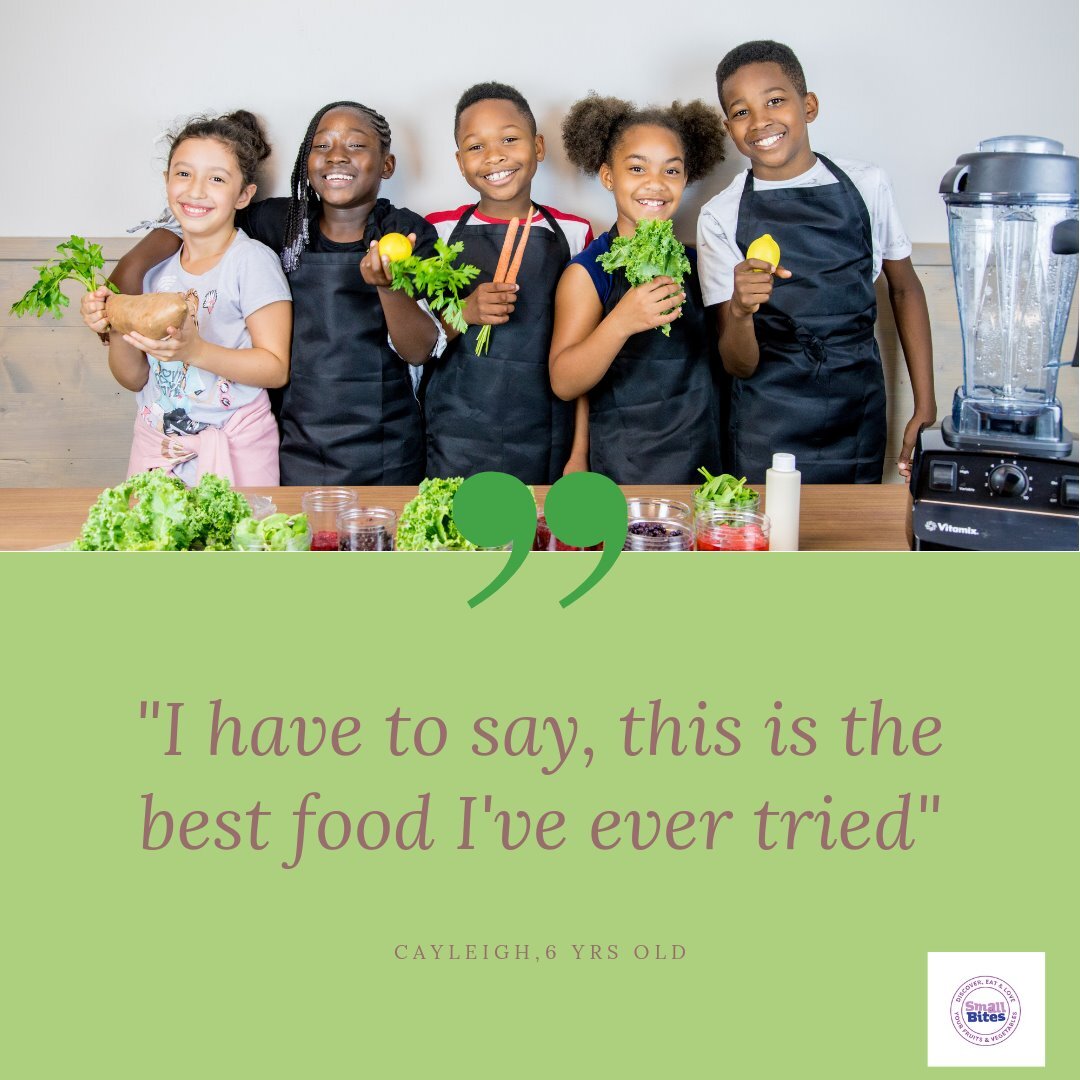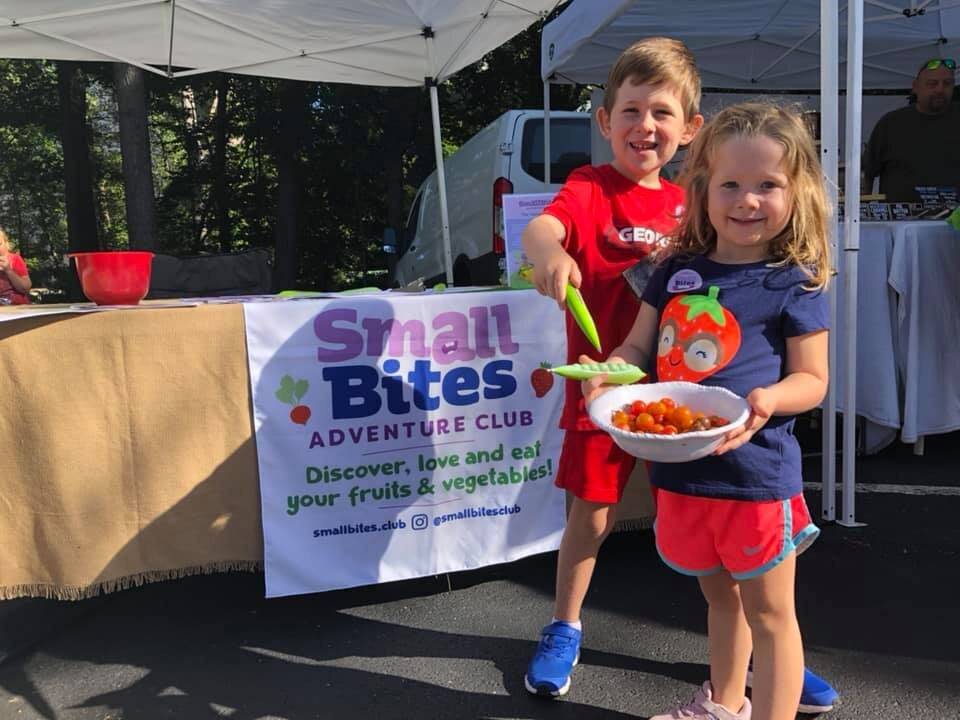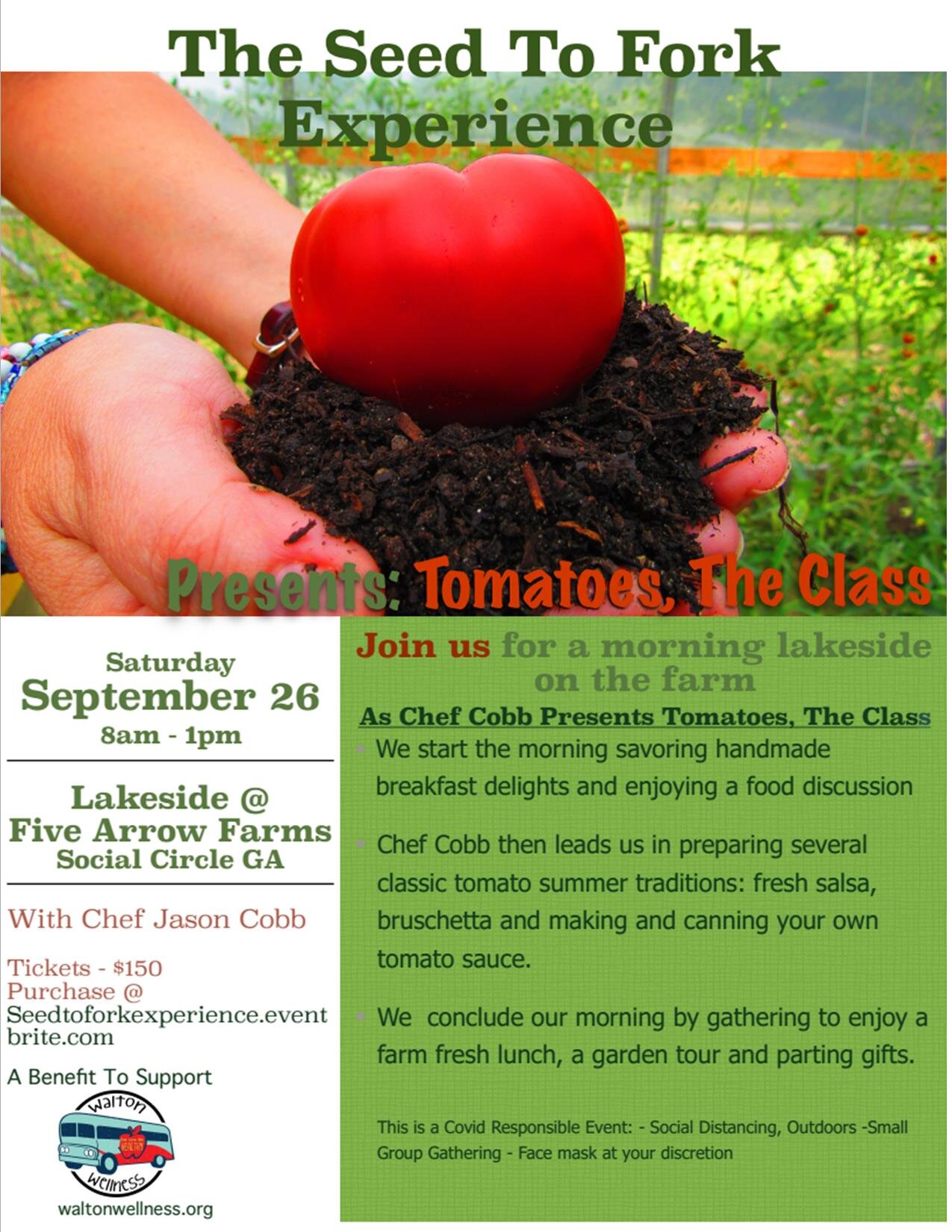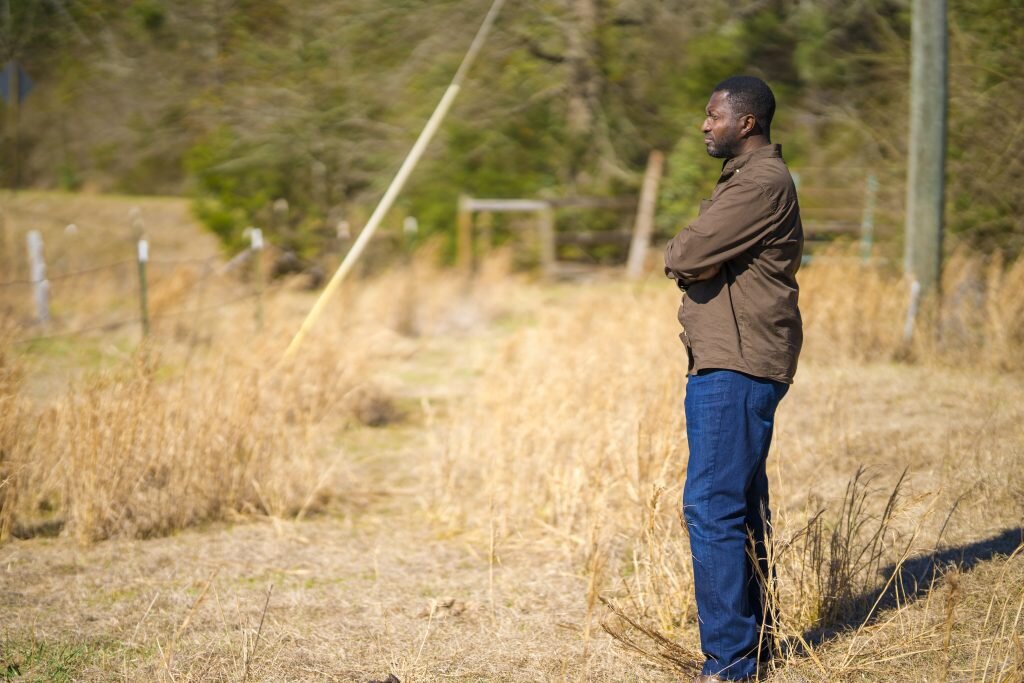By Kayla Williams
A few weeks ago, we had a conversation with Julia Asherman, farmer and owner of Rag and Frass Farm in rural Jeffersonville about...EVERYTHING. Rag and Frass Farm, an inaugural Farmer Cohort member of Georgia Organic’s Accelerator program, is an organic flower and produce operation growing on 2.5 acres. Julia has been operating Rag and Frass Farm for 7 years and farming for 9 years. Rag and Frass Farm sells their products through many avenues – the Mulberry Market in Macon, the Green Market in Milledgeville, the Grant Park Market in Atlanta, and through their own farm stand. You can find more information about where to buy from Rag and Frass here.
I have been case managing for Rag and Frass Farm throughout the Accelerator program and feel lucky to be working with such a strong, motivated, and smart grower. I could have summarized our conversation, but Julia’s words were too impactful and honest for me to do any mincing…
Why did you choose to be a farmer?
I don’t even really remember farming being a choice…it was more of happenstance – the things I wanted in life were most readily available if I became a farmer... I wanted to live in the country, have a big garden, have more independence, and be more sustainable. I just thought I’d be a rural person who lived in the country. When I was 19 or 20 in art school in Chicago and thinking about what was after college. For me, it wasn’t about food production or business, but more about being away from police, loving art, liking science, loving plants, and wanting to carve out space in the world for myself. It wasn’t that I was ever hooked – just made a decision to do something, and it just happened to be my calling. As a kid, I wanted to be an inventor – that really is what farming is, a marriage of art, science, philosophy, building processes, problem-solving. I really like being challenged and figuring it out.
Rag and Frass Farm. Photo credit: Kate Blohm
What happened when you told your family you were going to be a farmer?
I didn't have much to lose because I was really young and because I was in art school to be an artist, they had already made peace with the fact that I was going to do my own thing and probably wasn’t going to be wildly financially successful, so that made it easier for them to be OK with. And there just generally there wasn’t a lot to lose. They weren’t initially supportive but not shocked, and I’d always been the black sheep of the family. I come from a gardening family – both my parents, my aunts and uncles, my grandmother, all gardened and we went to the farmers market growing up so I didn’t have to convince them that it was important. Now that I’ve been farming for a while, they are all in, sending Boston Globe articles about local food. They’re just happy that it worked out.
What piece of advice helped you when you were just starting out?
A little bit of advice I didn’t take but I should have – protecting yourself and your investment. Starting as an apprentice or a tenant farmer, I was naïve about investment and ownership. Even if you put 110% effort into the farm you’re working on, you own 0% of it. It’s very easy to be taken advantage of when you’re so enthusiastic and love the work and the people you’re working for will let you do it.
Photos courtesy of Rag and Frass Farm
What advice do you have for beginning farmers?
Consider your own equity and worth, and make sure you don’t have any illusions about your ownership. It’s important to give full consent and fully understand what you are getting out of the experience. Your manager may be someone fully invested in your future and it may be someone who’s not, so be cautious.
What are your biggest moments of gratitude as a farmer?
When it’s raining and customers come out – when you’re going through a hard time and people show up, that makes me feel a lot of gratitude. When people put their money where their mouth is and choose integrity over comfort, that makes me feel grateful. When folks are doing the right way, and it has a positive impact, that makes me grateful.
What's a skill you have that makes you a better farmer, but you didn't initially think it would help you?
Knowing how to handle money and business-y things in general. All of the boring, dry, numbing, capitalistic parts…but have made me viable. Becoming a part of the system enough to stay alive. Knowing how to work the system, knowing how it functions, and also recognizing the parts of the system that aren’t wrong. Just because you’re anti-capitalist doesn’t mean that record-keeping and data and keeping track of money is wrong. There’s nothing wrong with that and it makes your life easier. And recognizing that farming IS a business and it’s a business by the nature of the fact that you’re making an exchange. The notion that farming is fun and good and pleasurable and there are no problems is wrong and also, it shouldn’t have to be romantic to make people want to farm. I’ve heard people and organizations say “I just really want to show people how easy it is to grow their own food”. It’s not easy AND it shouldn’t have to be. It’s worth doing because it’s necessary. It’s not more important because it’s easier – hard or easy has to do with outside factors. The incentive to farm is not purely financial.
Rag and Frass Farm. Photo credit: Kate Blohm
What's the best thing you invested in on your farm?
Two things – the tractor and the people. Investing in people has been a struggle – it’s not always easy to invest in people, because they’re hard and because investing in people takes a lot of emotional resources but it makes a difference. And the soil, let’s not forget the soil. There are a lot of things that are good investments. Another good investment? Owning land. It’s a totally different feeling and relationship to farming when you are able to own your land.
What makes you sustainable and what makes it important?
I don’t know…I don’t feel like my farm has reached the level of sustainability that I’d like it to. I’m pretty sustainable in practices, not perfect but pretty good. I feel “medium” about financial sustainability. The fact that everyone on the farm including myself and my partner are low paid makes me realize we’re not financially sustainable. But, the fact that the farm is able to operate year after year and is able to invest means we’re not in the red. There is a component of financial sustainability that is becoming increasingly necessary. To me, sustainability by definition is the bare minimum...being able to sustain yourself and tread water. Sustainability is a pretty low bar, and that’s how we measure success? And, we’re sustaining a level that’s been depleted overtime. That level is not an impressive place to begin with and maintain, we should be striving beyond sustainability. Sustainability is the bare minimum. It’s really not a lofty goal.
What's your vision for your farm?
I want it to be better in EVERY way, I want it to be more productive, more financially sustainable, I want my employees to have more rewarding experiences, and to be more financially rewarded, AND I want it to get easier. And to feel easier. And to be less heavy and less draining. I want to have my cake and eat it too. What we want is such a bare minimum, so it’s hard not to want it to be better.
How do you think farming should be in ten years?
I want farmers to be respected the way that doctors are, I want children to aspire to be farmers when they’re kids. I want a cultural 180. Why should physical labor be underestimated? Farmers are athletes, artists, scientists, preachers, philosophers, entrepreneurs – all careers that people respect.
What misconception about farming annoys you most?
There are so many. Like I mentioned earlier, that it’s romantic and glorious and that farmers love it all the time. And also that it’s a terrible lifestyle. That you can’t do it and be happy and have a life. Both sides are wrong and they’re not uniform and universal. I also think it’s annoying when farmers are seen as martyrs. You can be a bad farmer and a good person or a good farmer and a bad person. I'm not into the demonization of commercial growers. I see a lot of commercial farmers who are trapped in a system that they didn’t create and they don’t have the resources to get themselves away from that. And that’s related to the history of ag which is fraught with violence. People come to farming for such different reasons. Some come to loving food and food justice. But for me, the food aspect was the last part. I wanted to get away from rules and oppression, and food was a nice bonus. One of the things I like the most about farming is that I have more in common with someone who lives 200 years ago than a lot of people today. I can speak the same agrarian language from people across the world and across different times.
Rag and Frass Farm. Photo credit: Kate Blohm
What can sustainable agriculture and conventional agriculture learn from each other?
A lot. There’s a lot of common ground. I like finding common ground with people that are really different. The only real difference is the way people view certain resources and the economy. Conventional farmers are still plant and animal people, they just have different tools. There are only two reasons people are growing organic and/or sustainably: either you believe in it or you see the financial opportunity – and they’re both valid reasons. When I think about conventional growers who are thinking about transitioning, they usually see it from a financial standpoint. From some generations who grew up doing it a certain way, they may never see the tools in their toolbox as bad because they’ve been doing it forever. I’ve learned a lot from conventional farmers. They can teach sustainable/organic growers about efficiencies. There are a lot of things they can learn from each other. Having everyone around you say the same things isn’t always good. And different generations and types of farmers and different perspectives is a healthy thing. My neighbors who are spraying pesticides, I don’t feel like it would be helpful to get preachy about why they shouldn’t use the chemicals. It would be rude; this is their livelihood. Instead, let’s share our methods and work it out in a mutually beneficial way and learn from each other with communication and respect.
Anything you want to say about Georgia Organics and the Accelerator program?
I’m really happy and pleased to see GO doing more direct farmer services and reaching a diverse group of farmers - diverse in every way. For me, I always think about rural access and I’m happy to see there’s a lot of rural growers represented in the group and it’s nice to see rural farmers supported. Federal ag programs tend to leave out urban growers and sustainable growers. And non-profits tend to leave out rural growers. So, sustainable farmers in rural places get left out from support and opportunities a lot. In education, healthcare, childcare, internet access – there are a lot of specific challenges for rural populations and many of those challenges have not been addressed. I believe that is a big reason why you see the incredible polarization happening between urban and rural populations. That’s the next hugely significant issue that will continue to become more significant and we’re seeing the effects of that disparity in our political environment. Rural growers are not all young, hip people. A lot don’t have a computer and don’t have Instagram and don’t access the information they need because they’re not getting the benefit of celebration and being highlighted. I feel there’s a deeply ingrained stigma within this state about middle and south Georgia, so I appreciate that Georgia Organics and the Farmer Services team is prioritizing rural growers right now.
Favorite farm lunch?
Kale salad is a definite go-to in the spring/winter/fall. For summer, a tomato sandwich w watermelon & shishitos. For fall, I love sweet potato-poblano soup. But obviously, it depends on the season.
Photos courtesy of Rag and Frass Farm





















































